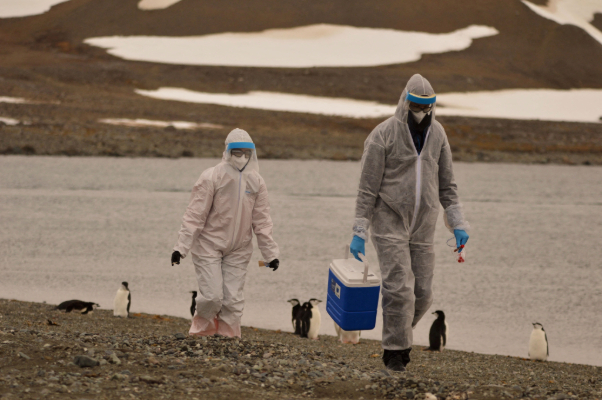World
The Ice Continent Antarctica Is Seeing A Growing China Presence

New Zealand said on Saturday that its Antarctic agency signed a memorandum of understanding with Germany’s Alfred Wegener Institute to foster cooperation between the two polar science bodies, amid China’s growing presence on the ice continent.
“Antarctica is of increasing geostrategic and scientific interest, and this arrangement will broaden connections between our marine and polar science institutes,” New Zealand Foreign Minister Winston Peters said in a press release.
Peters and German Foreign Minister Annalena Baerbock, in Auckland on an official visit to New Zealand, witnessed the MOU’s signing, according to the release.
The deal comes after New Zealand in February said it was reassessing a proposed overhaul of its decades-old Antarctica base after talks with a construction firm stalled. In 2019, New Zealand announced plans to revamp the base but since then projected costs have surged by more than 50%.
The Antarctic, due south of New Zealand and Australia, is increasingly crowded, with China opening its fifth research base there in February. Western governments are worried China’s increased presence in the Antarctic and Arctic could provide the People’s Liberation Army (PLA) better surveillance capabilities.
The Alfred Wegener Institute is the largest scientific organisation in Germany and coordinates German polar research efforts, according to its website.
India has an active Antarctica research programme and since 2008 has had a scientific team manning a station on the ice continent. India is a permanent observer on the Arctic Council and two years ago unveiled a “Six Pillar” Arctic Policy with the focus on scientific research, environmental protection, economic development, connectivity, national capacity building and so on. Later this month, in the southern city of Kochi in Kerala, India will host the 46th Antarctic Treaty Consultative Meeting. This is in line with India’s Six Pillar policy.
India is also closely monitoring the strategic rivalries playing out on the continent with China claiming “Near Arctic” status, which is not recognised by any of the Arctic states (Canada, Denmark, Finland, Iceland, Norway, Sweden, Russia and the US).










